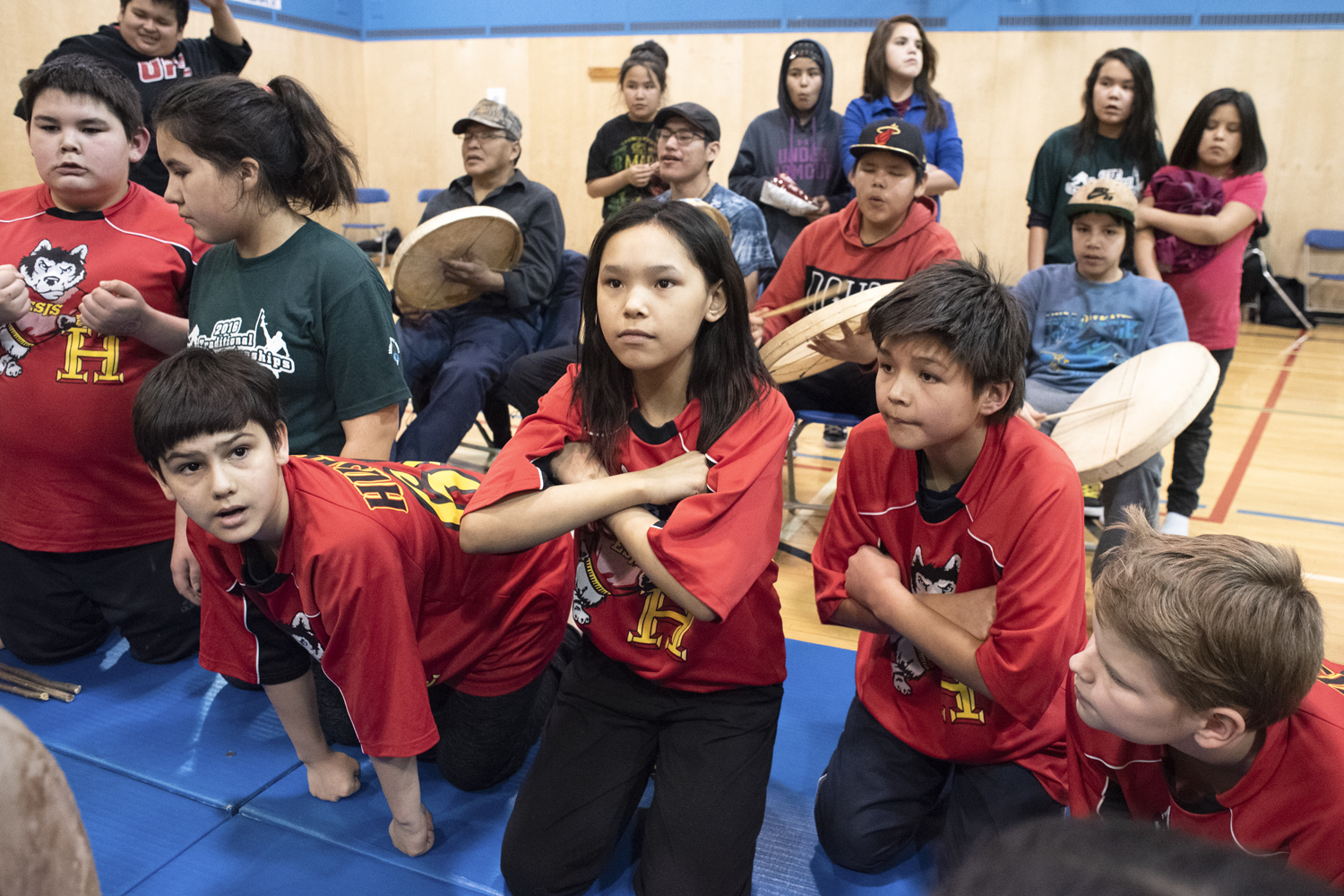June 21, 2019
Elders and spiritual people found a clearing near Behchoko in the Northwest Territories decades ago. Over the years they traced a path to and from the spot near the shores of Russell Lake, and others followed.
It's become a spiritual gathering place for the Tlicho community of about 2,000 people.
Fitting then, that following the elders was the theme of a three-day workshop on traditional Tlicho hand games held there in June.
Elders and youth gathered among sturdy birch trees and stands of gnarly pine and spruce, where everything forces a scrappy existence in sandy soil scattered upon an ocean of ancient rolling granite.
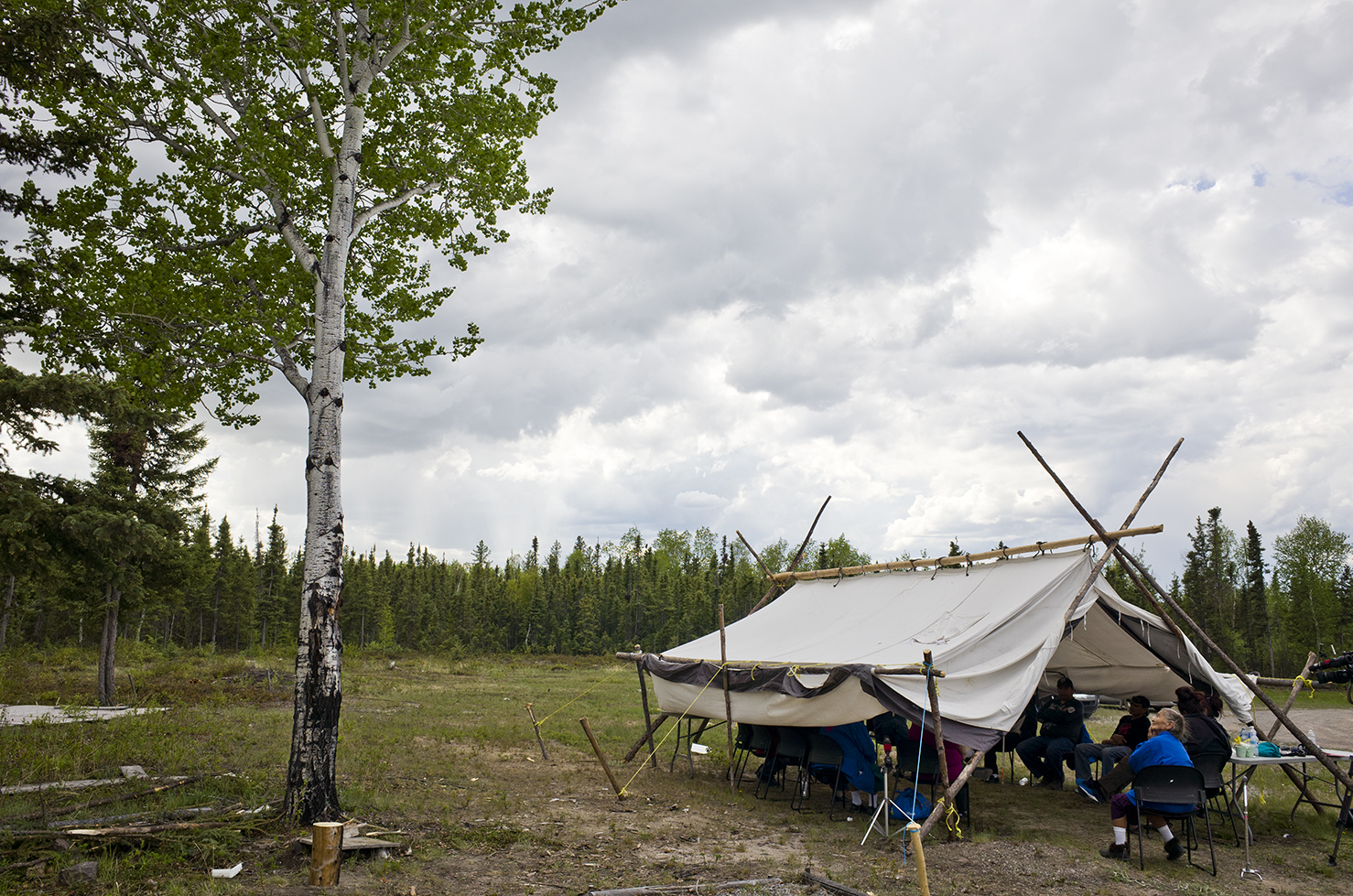
In the largest of three tents — cream coloured canvas suspended from tree-limb framing tethered together at critical junctures — elders and others take their places in a semicircular arrangement of chairs.
Leaves rustle in a strong, cooling lake breeze which must have carried the opening drum prayers some distance across the land where the Tlicho have, for all practical purposes, always lived.
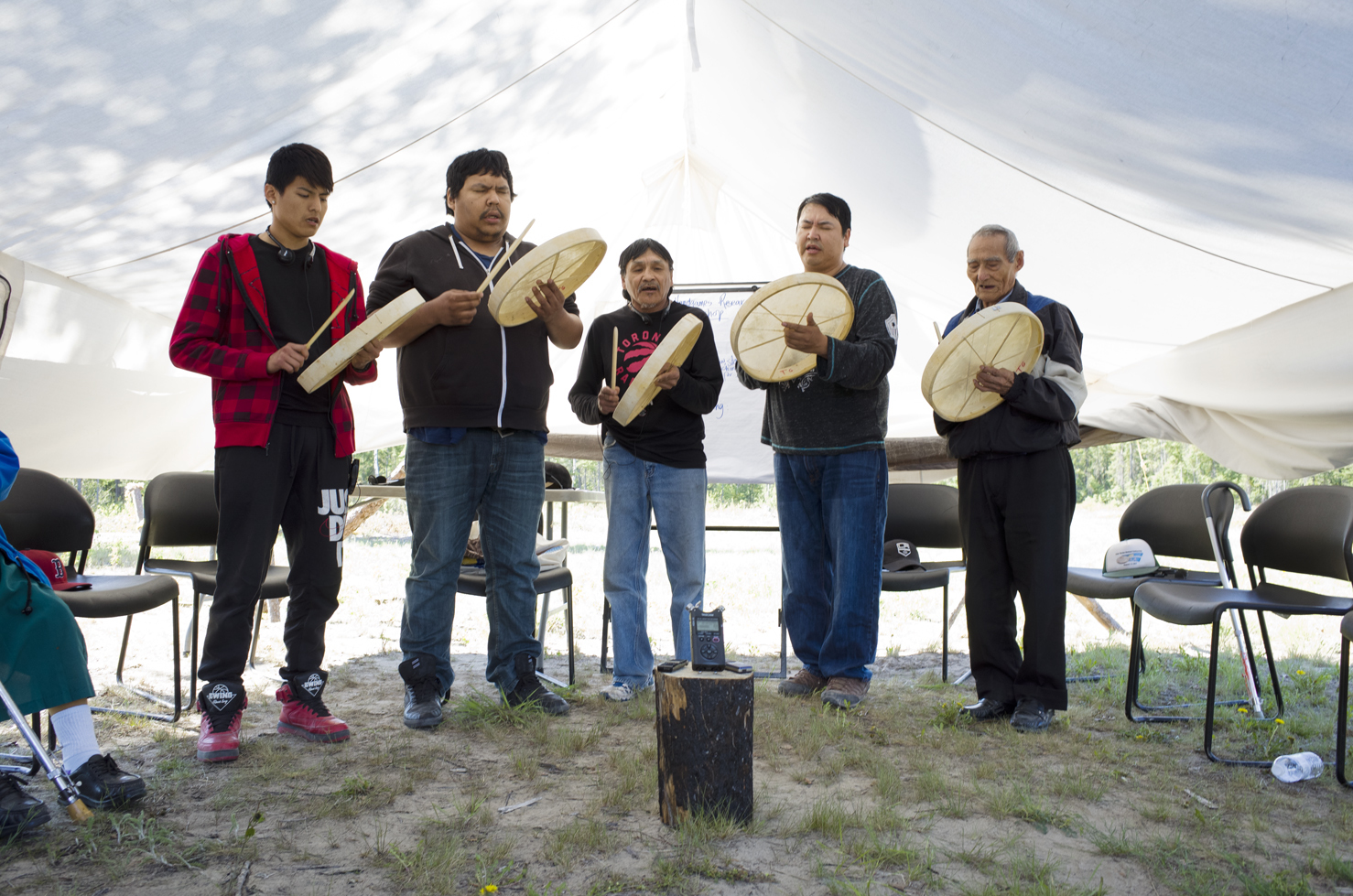
Dene hand games
Hand games trace back to simple gatherings among Dene who played for kinship and entertainment. Gambling has always been part of the game, even an essential part of it, said Tony Rabesca, Tlicho government cultural practice manager and organizer of the workshop.
In the old days, he said, men would gamble with items such as bullets, matches, and moccasins. Stakes could get much higher, with sled dogs at stake, or the sleds themselves.
But the purpose of the games is to build community and reinforce bonds: "The hand games are about spiritual fellowship, kinship and shaking hands," he said.

Hand games defy succinct explanation. To watch a game in action is to see opposing teams of men kneel in lines across from each other, and challenge one another — according to a highly stylized, energetic, physical routine — to guess in which hand opposing team members are hiding an object.
The idea is to trick the opponent into guessing the wrong hand in an animated battle of wits, guile, and swagger, all driven by the relentless beat of drummers behind each team.

Tlicho hand games have reached a high-water mark after a time in the 1990s, when youth participation was low. Hundreds of competitors pour into Behchoko for annual tournaments.
Hand game tournaments in the N.W.T. have only grown in popularity since 2005, when the Tlicho introduced big money tournaments that draw participants from around the North and Northern Alberta. Cash pots of up to $100,000 are at stake.
A major Tlicho hand game tournament is a living, breathing thing greater than the sum of its individual players, drummers or spectators. Play is driven by the relentless, booming pulse of dozens of drummers beating a sweaty, driving rhythm both compelling but vaguely dangerous at the same time, at least to the unaccustomed ear.
But it is the underlying significance - of the game, and of drumming - and of the significance of both to the Tlicho, that led to this workshop on the shores of Lake Russell, a spiritual place, to unpack the traditional understanding of Tlicho hand games and drumming.
Like any game, there are rules. But for the Tlicho, those rules are based on protocols with a spiritual dimension.
"They allow for healing and full participation in Tlicho community life," Rabesca said.
"The purpose of this hand game research workshop is to start collecting stories based on traditional laws ... with the support from elders and the youth.
“One of the things that we're hoping to do is to collect stories on how to protect the traditional game for future generations.
"Getting the stories from the elders will give us a guidance and support," he said.
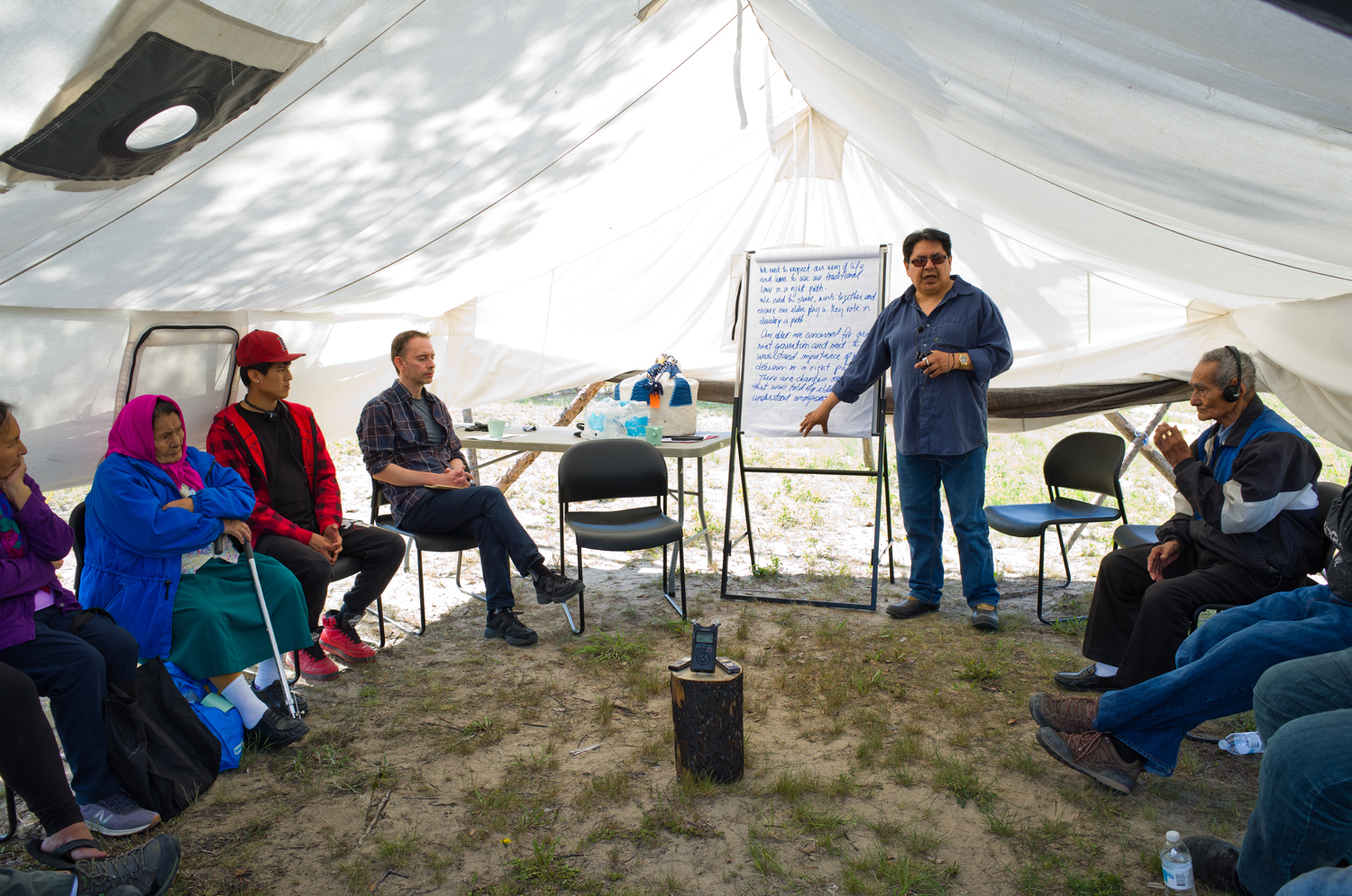
What's at stake for Rabesca are not only the rules of a game, but a way of life based on respect for what elders have passed down through uncountable generations. If the hand games forge cultural bonds between Tlicho people and communities, then to tamper with the rules of the game is to tamper with Tlicho culture itself.
"What will happen if we broke the law?" Rabesca asked. "How is that going to affect an individual — but not only the individual but the community and the nation?"
"It's part of ... reuniting and strengthening the bonds between people," said Noel Drybones, an older Tlicho man, drummer and hand game player who spoke during a workshop session through an interpreter.
But those bonds between people are primarily bonds between men, at least in the Tlicho verseion of the game.
A man's game
"The game is strictly a man's game. Women watch; they do not play or bet," wrote the late Dene anthropologist June Helm in 1966. In 2019 the rules remain the same, at least for the Tlicho.
Some other Dene communities allow women to compete. In some communities, women are said to have participated for decades, but that isn't the Tlicho way.
Rosa Mantla, a Tlicho cultural advisor and curriculum developer, led the workshop through some of the Dene Kede, or Tlicho cultural curriculum used to teach the young an ancient way of life.
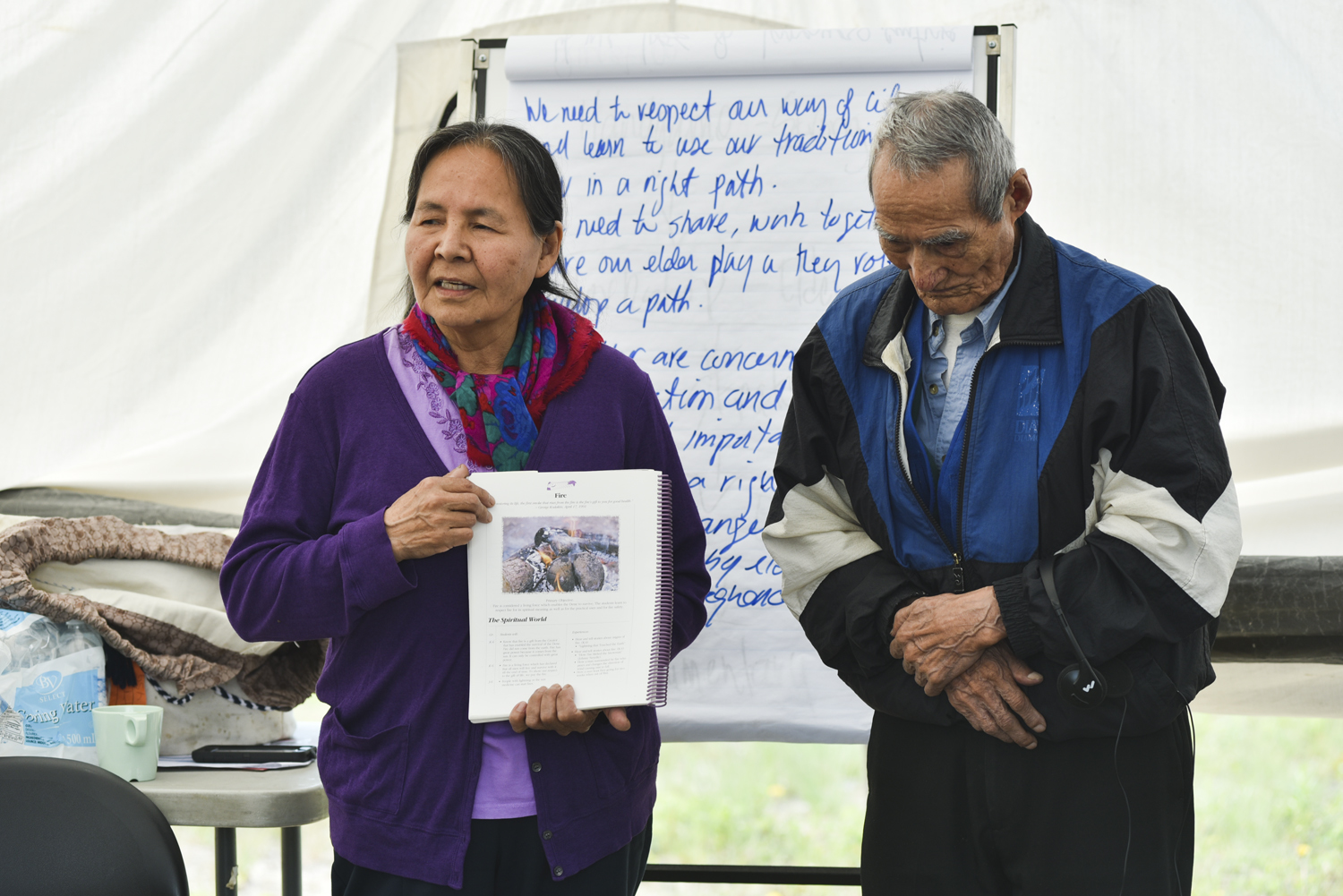
"In our culture women don't drum for hand games, entertainment or even drum dancing," Mantla said.
"It's the men's role to drum. And even for hand games — that's our tradition, it's our way of life."
But Mantla acknowledged times are changing. Young boys and girls play hand games together in school so that they can learn about the games together, she said.
There's no escaping the fact that traditionally the games are for men only. But Mantla says with young girls learning the game in school, future discussions with elders are inevitable.
"They should talk about it because for some of the women, especially the elderly women, I don't know if they're in approval of that, but it will be a discussion they have to make a decision on," she said.
New directions have already developed. All-girl teams compete in the Arctic Winter Games. Mixed boys and girls teams from across the North play in the Northwest Territories' annual youth traditional games championships.
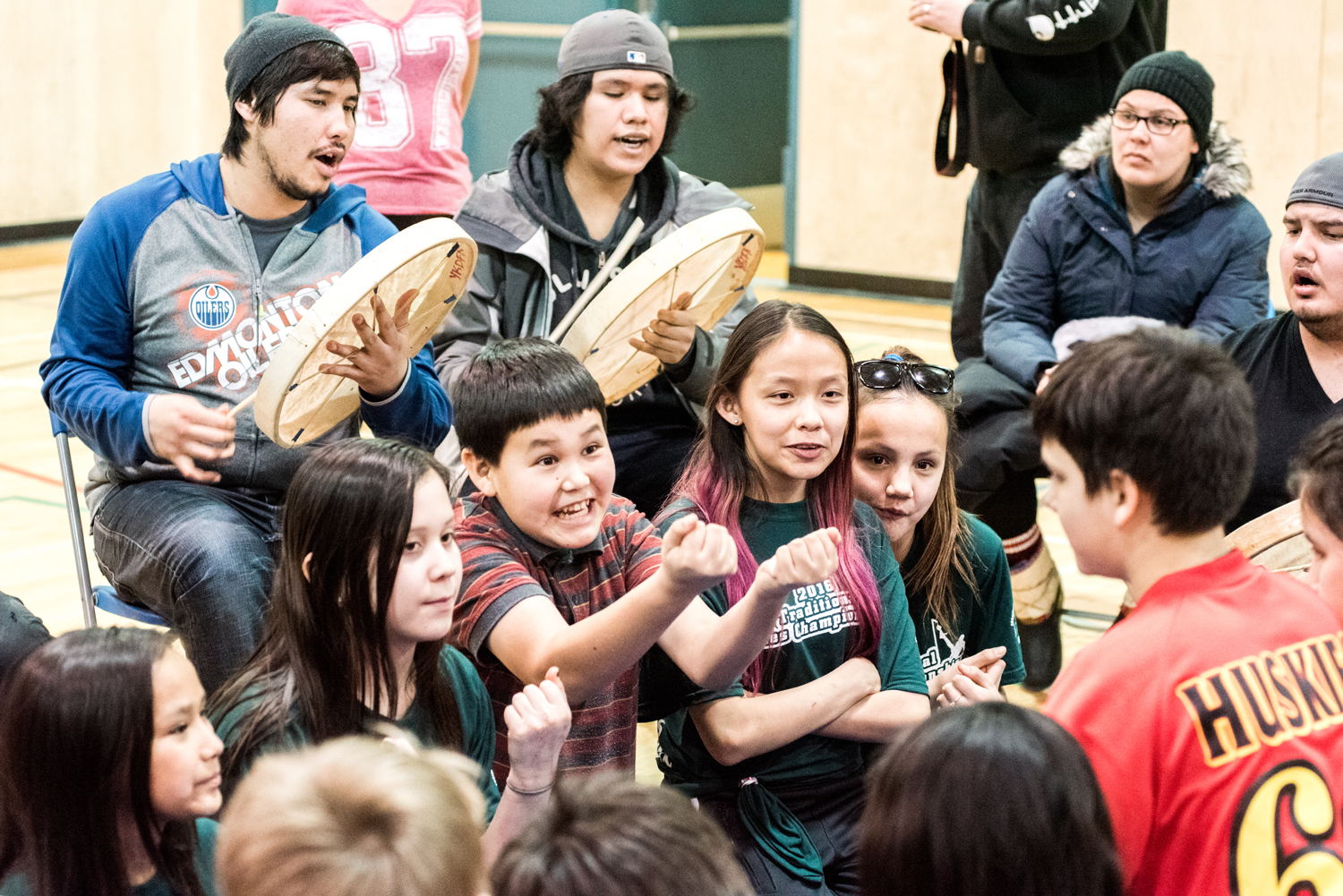
But respect for traditional ways and the teaching of the elders permeates any discussion of women and hand games.
Shawn Mackenzie, 24, didn't need the supplied headphones through which a running translation of Tlicho was provided.
Mackenzie speaks the language and describes life on the land with his grandfather — where he learned the traditional ways of camping, hunting and skinning — as what is closest to his heart. He plays hand games and drums, and says he knows that women play hand games "down south, but not here."
He's not entirely clear on why there's a prohibition on women playing in Tlicho hand game tournaments. He says it's likely traditional beliefs about the "medicine powers" of women and the traditional division of labour, but he's not sure.
When asked if women should be able to enter teams in Tlicho hand game events, he deferred to the elders.
"I've got to listen to the elders and see what they say," Mackenzie said. "It's not my point of view for everything."
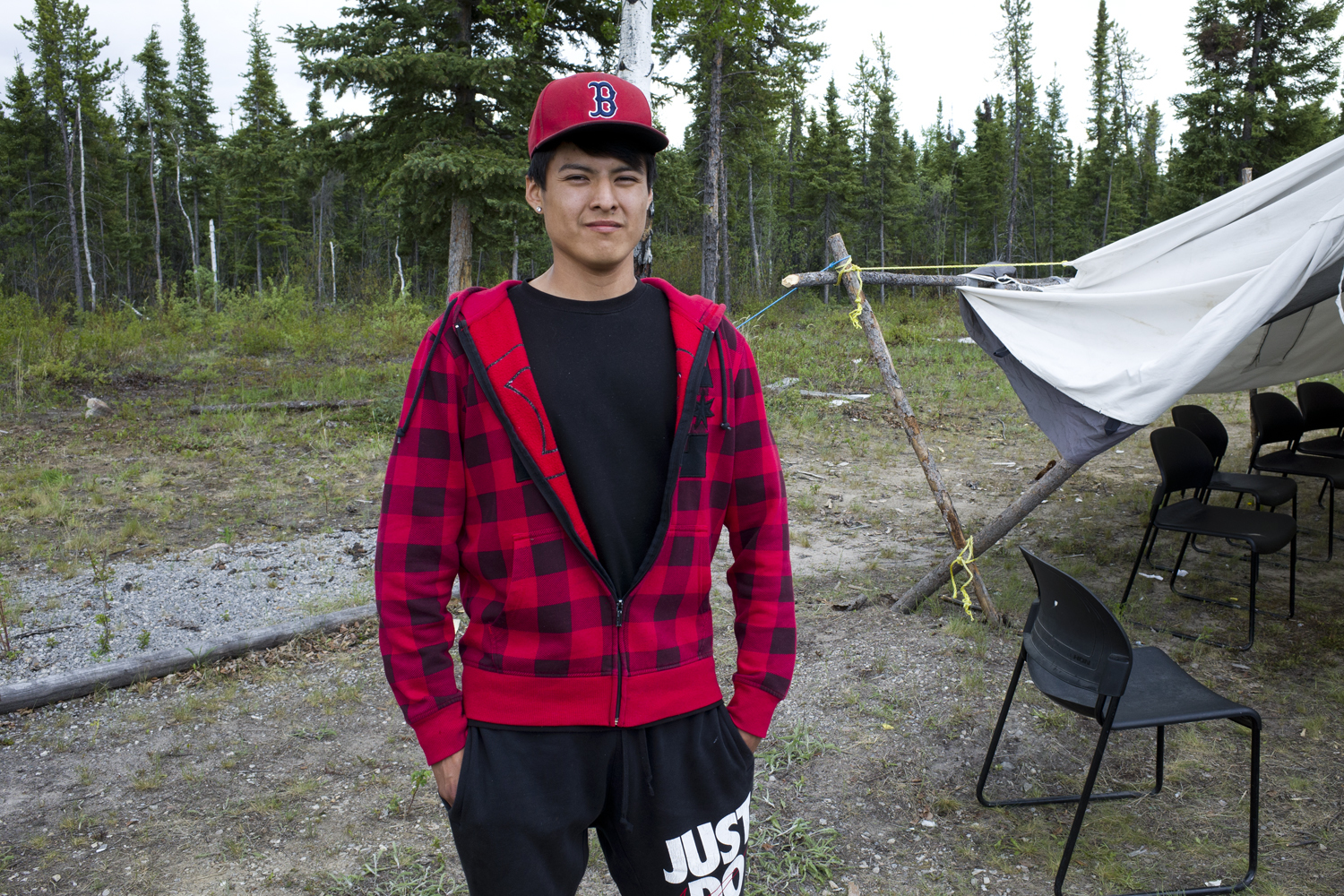
The workshop ended as peals of thunder and rain began to move in. Noel Drybones, who spoke earlier through a translator, sat under a small tent on a pine tree round. From under his ball cap he watched as workshop participants scurried in the sudden downpour to gather up the day's materials.
He welcomed over a reporter to sit beside him upon pine boughs laid out for comfort. The reporter asked him about women in hand games because Drybones had mentioned earlier he had a daughter.
Drybones said that he knew women wanted to play hand games "down river, the Mackenzie River."
"Are you okay with that?" the reporter asked.
"Yeh, they're okay with that," he said.
"[But] are you okay with that?" the reporter asked again.
"Yeh," he said.
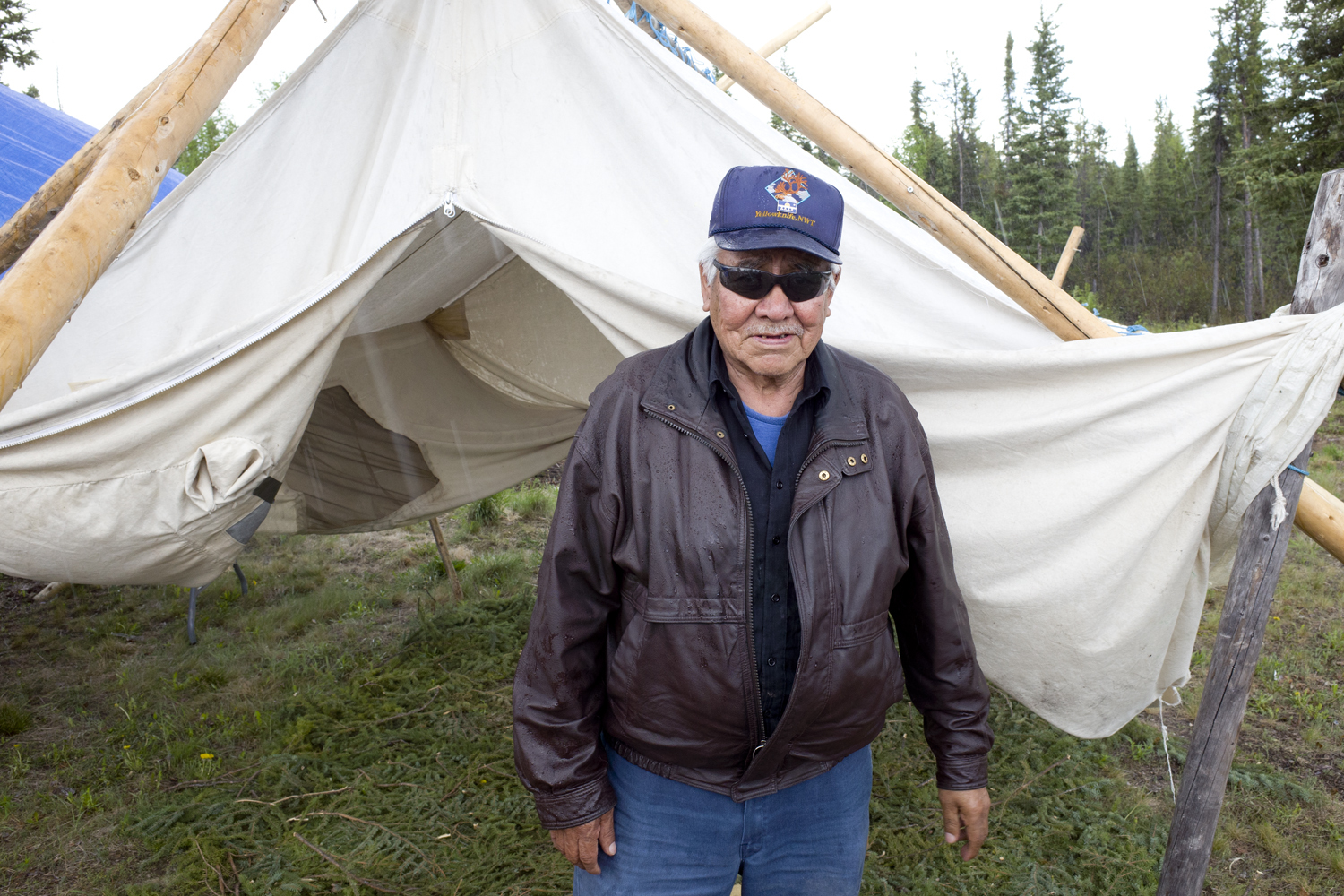
This was the first Tlicho traditional hand game workshop. Rabesca said there will be more.
"We need to do more workshops like this, so we can start collecting more knowledge and then we could pass it on to the next generation," he said.
